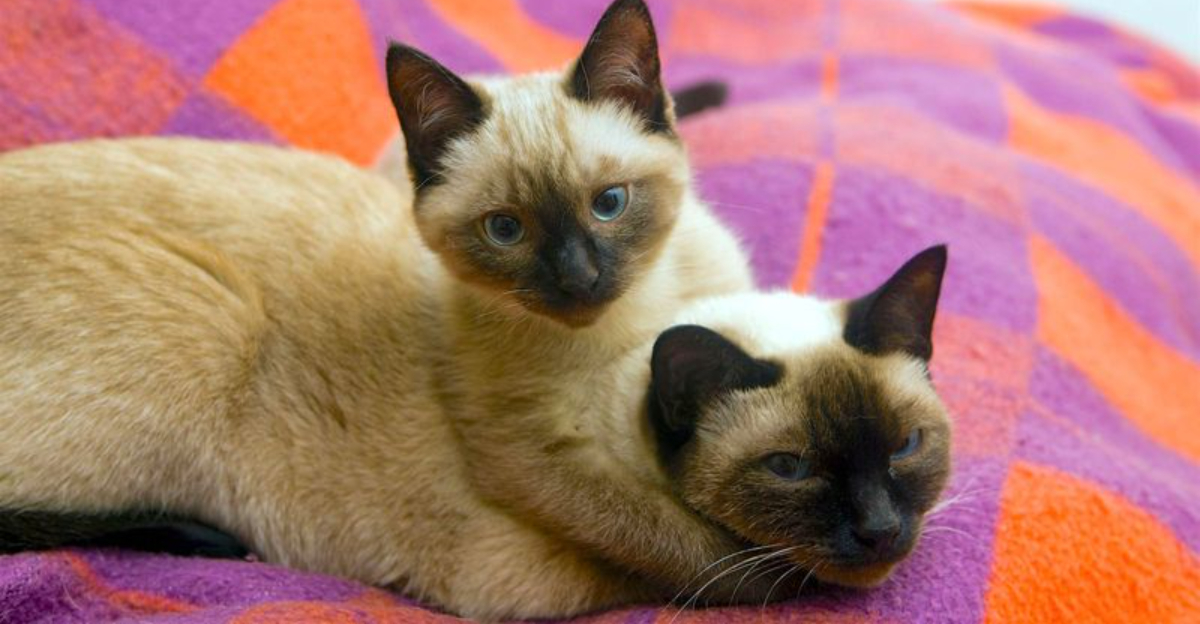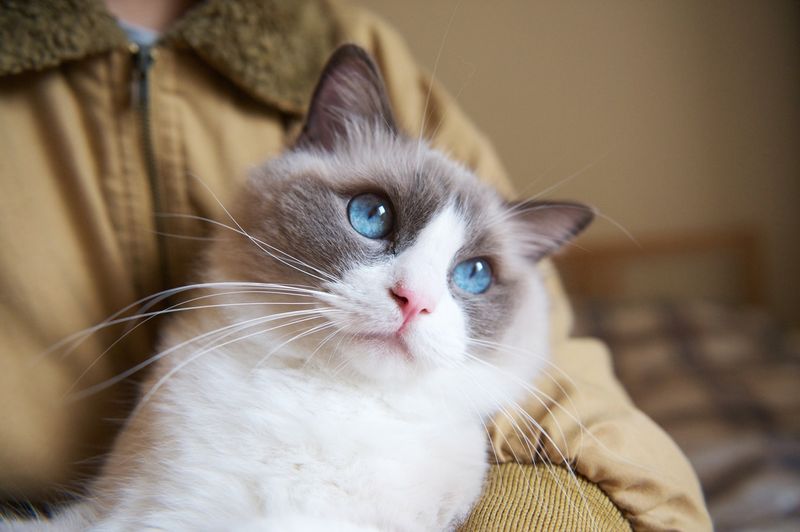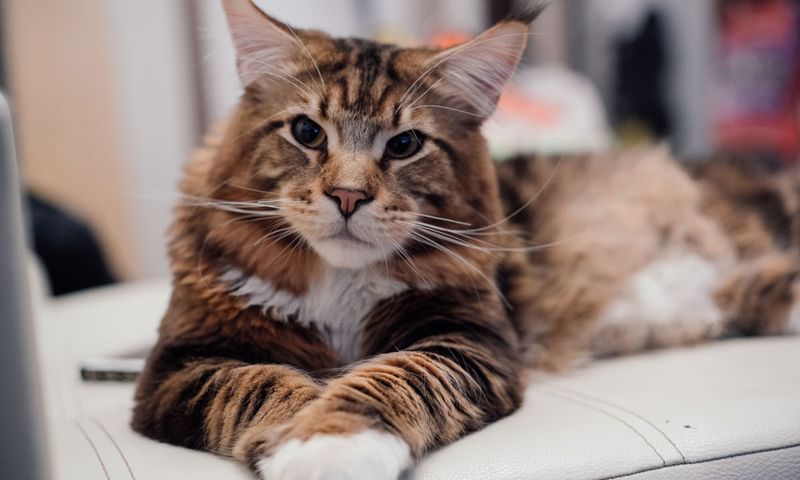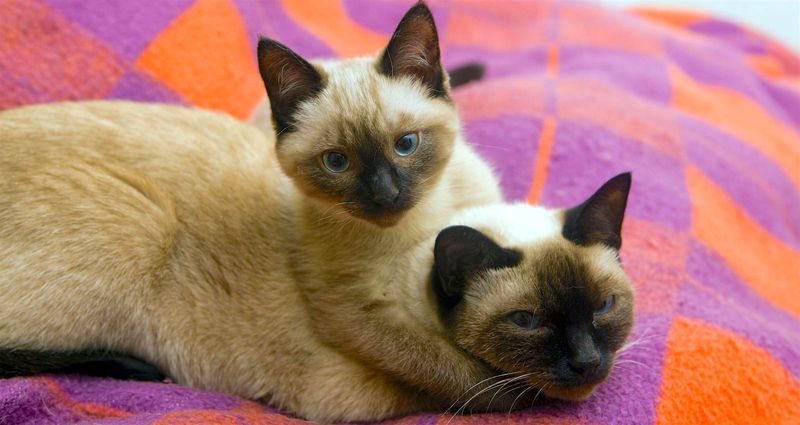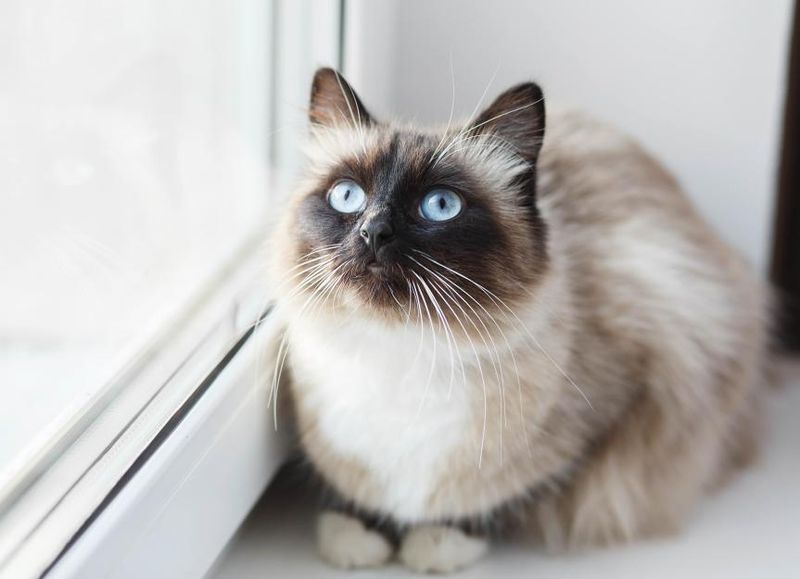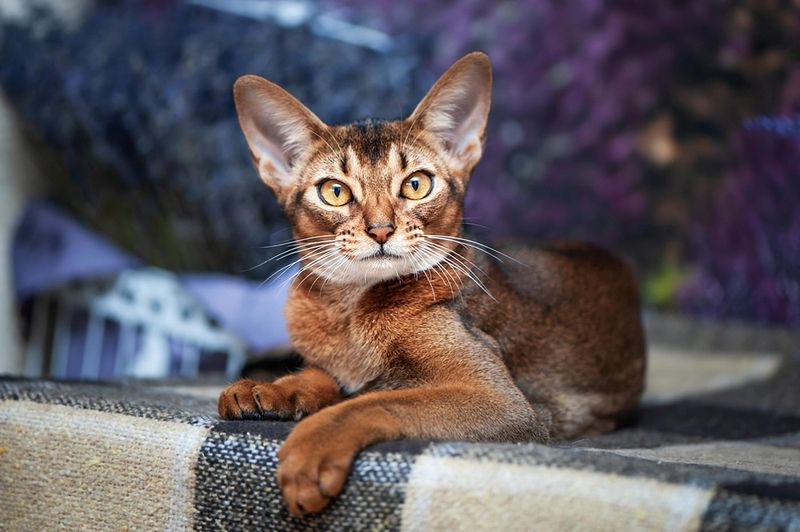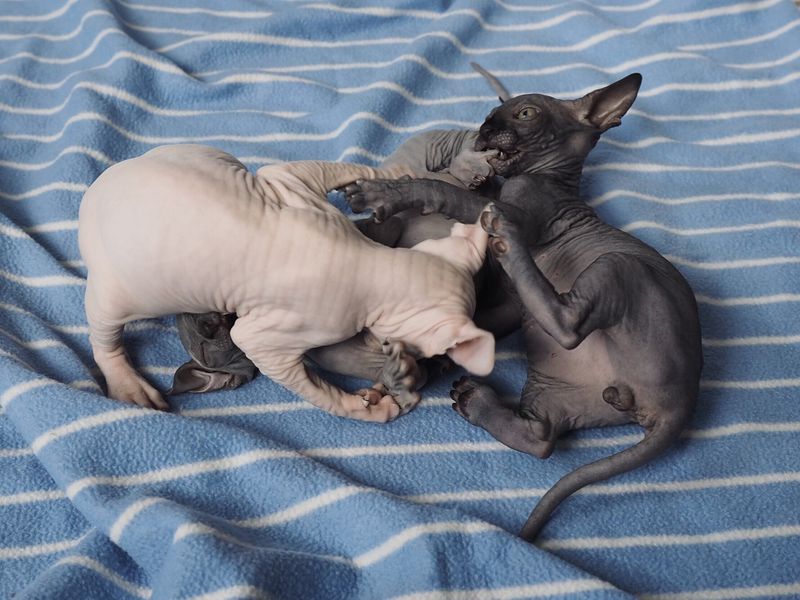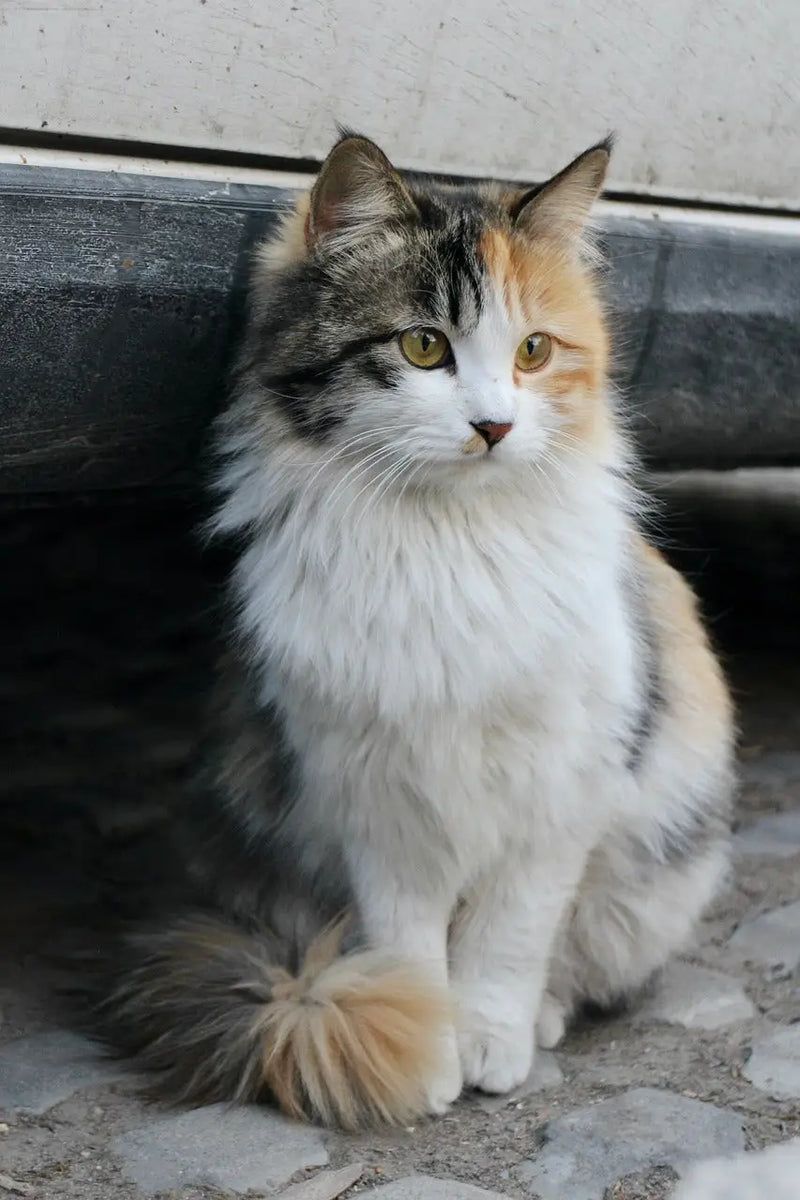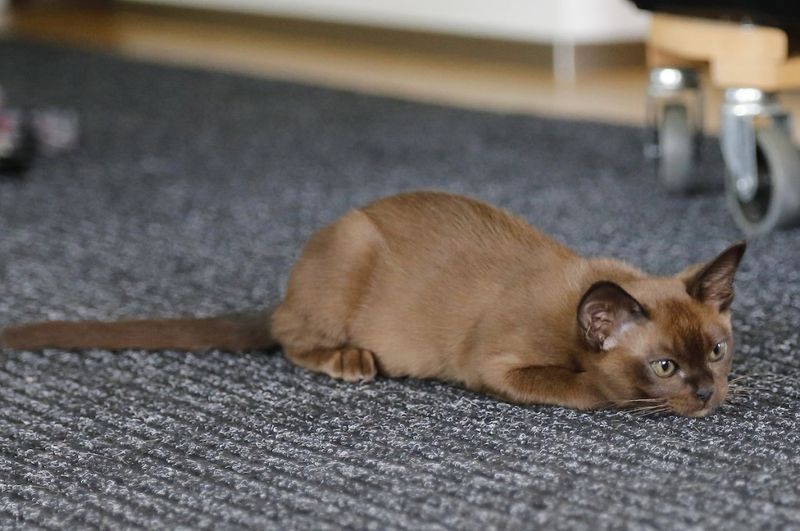📖 Table of Content:
Looking for a feline friend who plays well with others? Some cat breeds are naturally more sociable and easy-going than others. These friendly felines make great additions to homes with children, other pets, or multiple cats. Their gentle personalities and adaptable nature help them fit into almost any household situation without the hissing, scratching, and territorial disputes that can come with more independent cats.
1. Ragdoll
Ragdolls earned their name from their tendency to go limp when picked up, just like a child’s ragdoll toy. These blue-eyed beauties are known for their docile, affectionate temperament that makes them excellent companions in multi-pet households.
Unlike more territorial cats, Ragdolls rarely get into fights and actually seek out companionship rather than solitude. Their calm demeanor makes them patient with children and accepting of other animals.
Ragdolls typically weigh between 10-20 pounds when fully grown, with males being larger than females. Despite their size, they’re gentle giants who prefer following their humans around to asserting dominance over other pets.
2. Maine Coon
Gentle giants of the cat world, Maine Coons combine impressive size with remarkably sweet dispositions. These native American longhairs are famous for their dog-like loyalty and social nature that extends to children, strangers, and other animals.
Maine Coons communicate with distinctive chirping sounds rather than meows. This unique vocalization reflects their playful, kitten-like personalities that persist well into adulthood.
Their intelligence makes them easy to train, while their patient temperament helps them adapt to busy households with multiple pets. Maine Coons often take on a guardian role, watching over smaller animals and children with protective but gentle interest.
3. Siamese
Talkative and sociable, Siamese cats crave companionship and will let you know it with their distinctive vocalizations. These sleek, color-pointed felines form strong bonds not just with their humans but with other household pets as well.
Siamese cats actually get lonely when left alone for long periods. Many owners find that adopting Siamese cats in pairs helps satisfy their need for constant interaction and play.
Their high intelligence and curiosity make them engaging housemates who enjoy participating in family activities. Siamese cats adapt quickly to new routines and environments, making them flexible additions to households with existing pets or changing dynamics.
4. Birman
Often called “Sacred Cats of Burma,” Birmans combine striking good looks with exceptionally sweet temperaments. Their soft blue eyes and silky color-pointed coats come with none of the attitude sometimes found in other beautiful breeds.
Birmans thrive on gentle interaction and rarely show aggression toward other animals. They’re known for their patient, tolerant approach to children and other pets, making them ideal for multi-pet households.
Unlike some breeds that demand constant attention, Birmans balance sociability with independence. They enjoy company but won’t pester you or other animals with excessive energy or neediness, creating harmonious relationships throughout the home.
5. Abyssinian
Athletic and playful, Abyssinians bring energy without aggression to multi-pet households. Their ticked coat pattern gives them a wild appearance, but their personalities are anything but fierce when it comes to family members of any species.
Abyssinians form strong social bonds and enjoy having companions for play and exploration. Their curious nature drives them to investigate rather than fear new animals in their environment.
These cats maintain kitten-like playfulness throughout their lives. They excel at entertaining themselves and other pets with acrobatic antics and games. Abyssinians particularly enjoy having feline playmates who can match their energy and agility in games of chase and pounce.
6. Sphynx
Don’t let their unusual hairless appearance fool you—Sphynx cats have hearts as warm as their skin. These unique felines are among the most affectionate and socially oriented of all cat breeds, actively seeking out companionship from humans and animals alike.
Sphynx cats often cuddle with other pets for both social bonding and warmth. Their lack of fur makes them naturally drawn to sharing body heat, creating instant friendships with other household animals.
Their outgoing, clown-like personalities make them natural ice-breakers in multi-pet situations. Sphynx cats rarely show aggression and instead use their playful antics and loving nature to win over even reluctant animal housemates.
7. Norwegian Forest Cat
Hardy and adaptable, Norwegian Forest Cats combine wild looks with wonderfully domesticated temperaments. These semi-longhaired Nordic beauties evolved in harsh environments, developing both physical resilience and social flexibility that serve them well in multi-pet households.
Norwegian Forest Cats mature slowly, remaining playful and kitten-like for several years. This extended youthfulness makes them particularly good at bonding with other young animals in the home.
Though independent by nature, these cats value family connections. They establish peaceful relationships with other pets through quiet confidence rather than dominance displays. Their calm, unflappable nature helps them adapt to various household dynamics without stress or conflict.
8. Burmese
Burmese cats carry friendship in their DNA. Originally descended from a single cat brought from Burma to America in the 1930s, today’s Burmese have retained and amplified the sociable traits that made that founding feline so beloved.
Burmese cats actively seek out companionship and play opportunities with humans and other animals. Many owners describe them as “velcro cats” for their tendency to stick close to their favorite people and animal friends.
Their muscular bodies belie their gentle souls. Despite being solid and strong, Burmese use their strength for play rather than dominance. They’re particularly known for forming strong bonds with dogs, often becoming inseparable friends with canine housemates.
